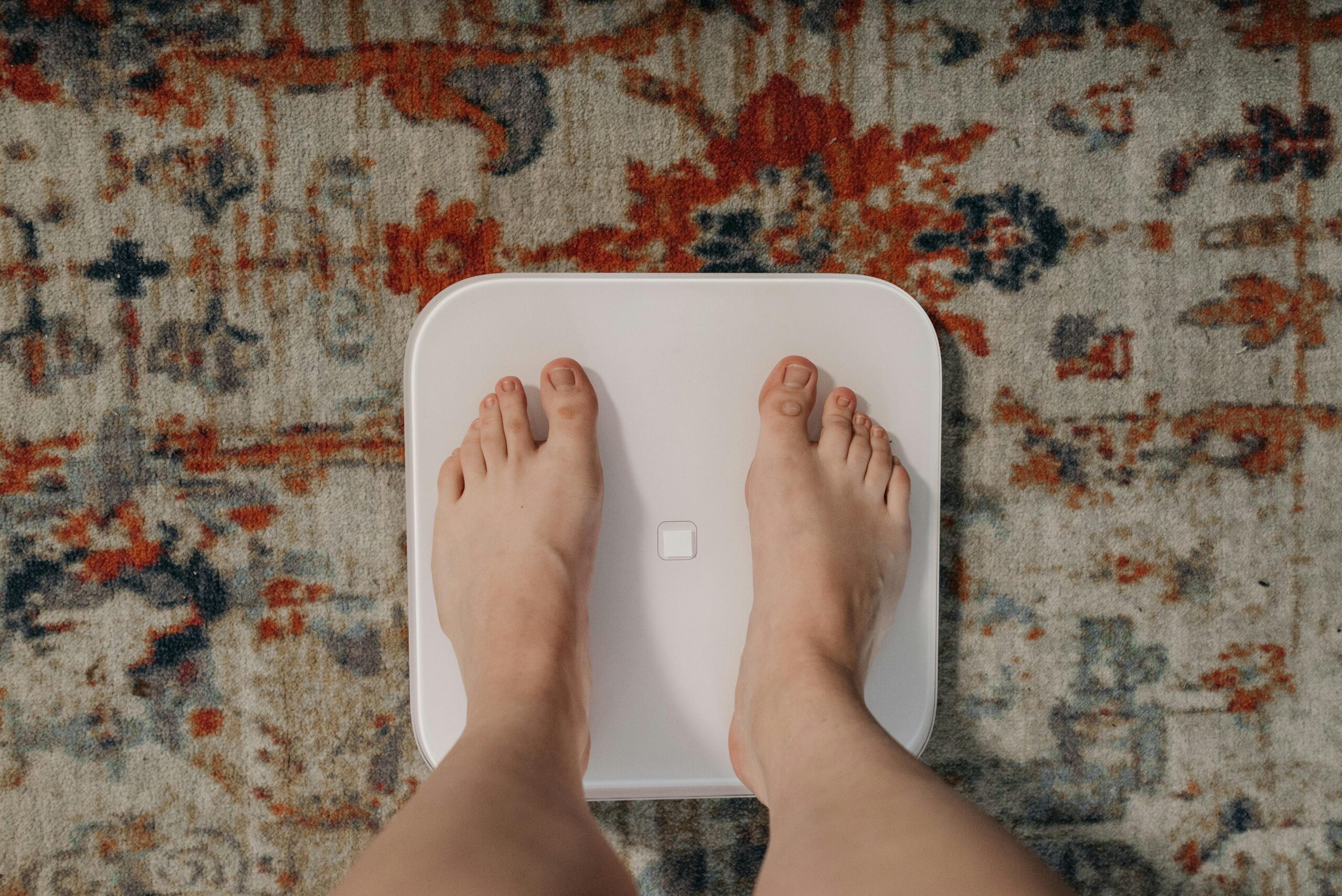Why Am I Gaining Weight on HRT?
If you’ve noticed the scale creeping up after starting hormone replacement therapy (HRT), you’re not alone.
Most weight gain during this stage of life comes from a slower metabolism, fluid retention, hormonal shifts, and lifestyle factors.
Let’s look at what’s really going on and how you can take control.
Does HRT Really Cause Weight Gain?
There’s a common myth that HRT automatically leads to weight gain.
Research shows that isn’t true.
Studies consistently find that HRT doesn’t directly cause long-term fat gain.
What it can do, however, is trigger short-term bloating, water retention, or a shift in fat distribution.
These changes may feel like weight gain, but they’re often temporary or manageable.
Why Weight Gain Happens on HRT
Let’s take a look as to why weight gain can happen while on HRT:
Hormonal Shifts and Slower Metabolism
Estrogen plays a big role in how your body uses energy and stores fat.
Studies show as levels drop in menopause, insulin sensitivity decreases, making it easier to store fat around the belly.
At the same time, muscle mass naturally declines, which lowers your daily calorie burn by about 200–250 calories.
When you combine this with aging, it sets the stage for midlife weight gain.
Fluid Retention and Temporary Bloating
Certain types of HRT, especially those that include progesterone, can cause water retention.
This isn’t true fat gain, but it can make you feel puffy or add a few pounds on the scale.
The good news is that this often improves as your body adjusts or with a dosage change from your provider.
Lifestyle and Aging Factors
Hormones aren’t the only factor at play.
Stress, lack of sleep, and lower activity levels all impact your weight.
Poor sleep raises cortisol, a hormone that encourages belly fat.
Stress can trigger cravings for sugary, high-calorie foods.
And when metabolism slows, those extra calories are harder to burn off.
Short-Term vs Long-Term Weight Changes on HRT
It helps to separate the phases of weight changes:
- Short-term: temporary water retention and bloating
- Mid-term: shifts in where your body stores fat, often around the midsection
- Long-term: true weight gain, which is usually linked to age, muscle loss, and lifestyle choices rather than HRT itself
How to Stop Gaining Weight on HRT
Here are some strategies to mitigate weight gain while on HRT:
Eat for Hormone and Metabolic Health
A Mediterranean-style diet with lean protein, vegetables, fruits, healthy fats, and whole grains can help stabilize blood sugar and support metabolism.
Reducing added sugars and processed foods lowers the risk of insulin resistance and stubborn belly fat.
Strength Train to Protect Muscle
Resistance training two to three times per week is one of the best ways to maintain muscle mass, boost metabolism, and keep your weight steady.
Pair this with regular walking or other cardio for overall calorie burn.
Prioritize Sleep and Stress Management
Consistent, quality sleep helps regulate hunger hormones, while stress management lowers cortisol.
Even small steps, like turning off screens an hour before bed or practicing daily mindfulness, can make a big difference.
Work With Your Provider
If you’re struggling with weight changes, talk to your healthcare provider.
Sometimes adjusting the type or dosage of HRT can reduce bloating.
Tracking body composition (like waist size and muscle mass) instead of just scale weight gives a clearer picture of your health.
Takeaway: Why Am I Gaining Weight on HRT?
If you’re asking, “Why am I gaining weight on HRT?”
The answer is usually a mix of hormonal shifts, a slowing metabolism, and lifestyle factors, not HRT itself.
While the therapy may cause short-term changes like bloating or fat redistribution, long-term weight gain is preventable.
With the right nutrition, exercise, stress management, and medical guidance, you can feel in control of your weight and your health.
Most weight gain during this stage of life comes from a slower metabolism, fluid retention, hormonal shifts, and lifestyle factors.
Most weight gain during this stage of life comes from a slower metabolism, fluid retention, hormonal shifts, and lifestyle factors.
FAQs: Why Am I Gaining Weight on HRT
How to get rid of HRT weight gain?
The best way to reduce weight gain on HRT is to focus on lifestyle strategies like strength training, balanced nutrition, quality sleep, and stress management. These approaches help offset slower metabolism and hormonal changes.
Which HRT is best for weight loss?
No form of HRT is specifically designed for weight loss, but estrogen therapy may support better fat distribution and muscle maintenance. The right type of HRT varies by individual, so it’s best to work with your provider to find the most effective option.
Does coming off HRT help you lose weight?
Stopping HRT doesn’t automatically lead to weight loss. Since most midlife weight gain comes from metabolism changes, aging, and lifestyle factors, discontinuing HRT rarely makes the scale drop on its own.
What to avoid while on HRT?
It’s wise to limit alcohol, processed foods, excess sugar, and smoking while on HRT. These factors can increase bloating, raise health risks, and make weight management more difficult.
How long does it take for HRT to reduce belly fat?
HRT isn’t a quick fix for belly fat. For some women, estrogen therapy can improve fat distribution over months, but lasting results depend more on diet, exercise, and lifestyle changes than the medication alone.
Can you take Ozempic while on HRT?
Yes, some women use medications like Ozempic alongside HRT, but this should only be done under medical supervision. Your provider will help determine if combining the two is safe and effective for your health goals.







